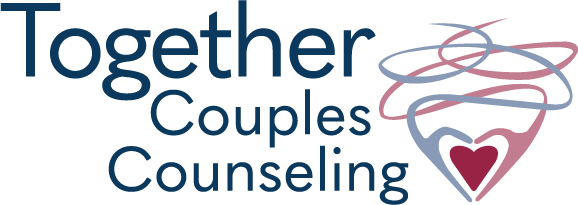What Do We Think of as Self-Esteem?
“There once was an ugly duckling, with feathers all stubby and brown. And the other birds, in so many words, said ‘Quack, get out of town!’ And he went with a quack and a waddle and a quack in a flurry of eiderdown…”
These well-known lyrics of the Danny Kaye song, the Ugly Duckling speak directly to what we think of as self-esteem. The ugly duckling hides away for the winter “…ashamed to show his face, afraid of what others might say…” Then, with the change of season and time, his stubby brown feathers change into a snowy white back and he’s recognized as a swan. He’s then accepted by the others as beautiful and worthy of being a part of the community of birds, unlike when his feathers were stubby and brown.
Most of us struggle from time to time with low self-esteem and look for ways to feel better about ourselves. However, our solutions to this struggle often lead us down the wrong path.
Three Types of Fragile Self-Esteem
Fragile self-esteem can make you feel better than others, which is the flip side of feeling less than, and just as toxic to genuine connection and relatedness. Being fragile, such self-esteem can easily break, leaving you feeling even worse about yourself than before.
We recognize three types of fragile self-esteem:
- Performance-based esteem;
- Other-based esteem; and
- Attribute-based esteem.
Note that in each case, we call it “esteem” rather than “self-esteem,” because the esteem in these cases isn’t of your own self.
Performance-Based Esteem
Performance-based esteem is when you measure your worth by what you DO. Here are some examples:
- When I get that promotion, I’ll be happy with myself
- When I lose the weight, I’ll feel good about myself
- When I publish my book, I’ll feel good about myself
- I only have a Bachelor’s degree, so I don’t feel good about myself
- When I work long hours, I feel good about myself (workaholism is an extreme version of performance-based esteem)
Does this mean we shouldn’t take pride in our accomplishments?
Not at all.
We can and should feel pride in what we accomplish, but those achievements don’t determine our self-worth. You aren’t worth more as a person just because you’ve accomplished something. Even more important, you aren’t worth less if you fail at what you set out to do.
That’s the pitfall of trying to feel self-esteem through things you do. It makes you feel more than others if you succeed, and less than if you fail. This is the key difference between performance-based self-esteem and healthy self-esteem. The truth is that you are just as worthy of warm regard as anyone else, no more and no less, no matter how well or poorly you succeed at doing things.
Other-Based Esteem
Other-based esteem is when you measure your self-worth by how others perceive you. For example:
- I feel good about myself because I was accepted into the sorority, if I wasn’t, I’d think less of myself;
- When I please others, I feel good about myself; when they aren’t pleased, there must be something wrong with me; or
- I need them to like me, so I’ll do what they want me to do so I can feel good about myself.
Basing your self-esteem on the fickle feelings of others is a very fragile way to determine your self-worth. No one can ever be liked by everyone, and when you base your sense of self-worth on what others think of you, you feel tossed about like a ship in a storm.
We all need and want to surround ourselves with those who like and love us, but our worth is not determined by them, let alone by those who don’t love us. The pitfall of handing your self-esteem over to others is that you lose your true self.
Attribute-Based Esteem
Attribute-based esteem is when you measure your self-worth by what you HAVE or OWN. Some examples include:
- I feel good about myself because I drive a fancy car, own a big house, and have “six-pack abs”;
- I feel good about myself because I’m tall, thin, blond, and have fair skin (these kinds of beliefs reinforce our cultural and systemic injustices);
- My child goes to an Ivy League School, which proves my worth as a parent.
It’s not that you shouldn’t enjoy the things you own or have.
On the contrary, happiness is easiest when you can find joy in your current circumstances.
The pitfall here is that thinking less of yourself because you don’t have what your neighbor has, you may feel forced to spend money you don’t have on things you don’t need, a.k.a. “Keeping up with the Joneses.” Worse, if you base your sense of self-worth on your body, you may lose the ability to connect with others who aren’t as close to your ideal as you hold yourself to be. Also, where your body falls short of what society holds as ideal (and who among us doesn’t fit that description?), you consider yourself unworthy of the warm regard that’s your birthright as a human being.
Reconnect to Your Genuine Healthy Self Esteem
The beautiful reality is that you are worthy of love and connection no matter what. You have as much worth as anyone else simply because you were born and exist in this world!
When you connect to healthy self-esteem, you’re able to hold yourself in warm regard, despite your flaws and imperfections. Find freedom and serenity in the knowledge that you are no worse (nor better) than anyone else in this world, and that you are worthy of love and connection no matter what.
Healthy, non-fragile self-esteem is the ability to say, “Yup, I messed up and I need to clean it up, AND I am still a good person” or “Wow, I am proud of myself for accomplishing that AND I’m no better than anyone else because of it.” We can be proud without having to feel as if we’re above everyone else.
When you connect to healthy self-esteem, you remember that no matter what you accomplish or fail at; no matter what others think of you, good, bad, or indifferent; no matter how much or little you own or how privileged or unprivileged you are, you still put on your pants one leg at a time, you still have to take out the trash, you still make mistakes, you will continue to unintentionally hurt people (even those you love). In all this, you’re just like everybody else, and you’re still able to hold yourself lovingly and compassionately and do what it takes to repair things when you mess up.
Putting it into practice
Reconnecting to healthy self-esteem is a practice, day-to-day, and often even minute-to-minute. Here are some ways for you to start incorporating that practice into your life.
- Challenge your negative, unhelpful thoughts and replace them with realistic, helpful statements. Instead of, “I’ll never get this business off the ground” say to yourself, “There are obstacles and I am doing my best each day to learn and figure this out.”
- Use the “I Am…” method: Simply using positive mantras like “I am a loveable person” has actually been found to create lower self-esteem in people who already struggle with low self-esteem, rather than improve it. Instead, stop and think about how success has had broader implications and how personal qualities have contributed to that success. Use the phrase “XYZ went well…because I AM…”.
Example: “The difficult talk with my daughter went well because I am empathic, caring, and a good listener.”
- Rigid beliefs about your identity get in the way of connecting to healthy self-esteem. Avoid the pitfall of performance-based esteem by defining success in a variety of ways, rather than through an arbitrary pass/fail test. See yourself as flexible and adaptable to different circumstances.
- Avoid the pitfalls of other-based esteem by striving for adequate competence (without expecting yourself to be perfect or even exceptional) in areas that you personally value. Remember, it’s not about what others think or value, but what you determine has meaning and importance in your life. Do you know what you value? Do your actions match what you value?
- We are each our own worst critics – we often speak to ourselves in such terms we’d never accept from anyone else. Overcoming your internal self-criticism is easier to do with support.
Here’s to Your Healthy Self-Esteem
Life experiences, the families we grew up in, the relationships we’ve weathered, the culture we live in, and systemic injustices have disconnected most of us from the basic, inalienable truth of healthy self-esteem.
What I wish for you, for all of us, for our communities, our country, and the world at large, is the reckoning required to return to this truth, one person, one relationship at a time.
If you’re struggling with low self-esteem, contact us to see how we can help, or visit our individual therapy page to learn more about the ways in which therapy can support you.





